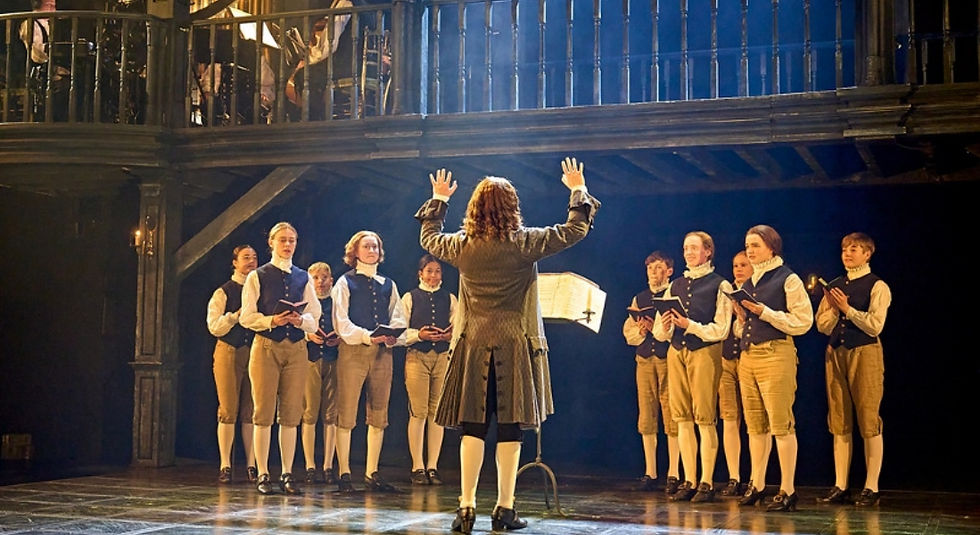Helen Edmundson, after Jamila Gavin
Chichester Festival Theatre
The Lowry, Salford
June 21-29, 2024: 2 hrs 50 mins


A virtue of this version of Helen Edmundson’s adaptation of Jamila Gavin’s Coram Boy is that it will almost certainly send people scurrying to the book itself. In fact it would be well worth doing so before you see the show, as it’s got an extremely complicated plot. BBC Bitesize has an overview page which might be a practical alternative.
The play was first performed at the National Theatre in 2005 and went to Broadway, and was restaged in Bristol in 2011. This is a new production with new and effectively atmospheric music and soundscore by Max Pappenheim.
Handel’s Messiah gets a look-in, too, as the story centres on the Foundling Hospital in London, a pioneering orphanage for abandoned children established by ex-sea captain Thomas Coram in 1741 – the year in which Messiah was written. Handel donated the proceeds of annual Easter performances of the oratorio in the hospital chapel until his death – a tradition which helped bring the music lasting popularity.
Such is the history, which Jamila Gavin plays with freely in her novel.
Gavin's creation features two groups of young people: first a friendship between two boys from different backgrounds who sing in Gloucester Cathedral choir, and love and a sexual encounter between one of them and a girl who’s known to his upper-class family but is below their “station”; then, nine years later, the child of their union, who is cared for at the Foundling Hospital and his friend, born to an enslaved woman, discover the reality of who two adults they know as music teachers really are. It’s a lot more detailed and entwined than that, and paints a picture of mid-19th Century English society, including class and economic divides, the treatment of those with a disability, the practice of paying for children of illegitimate unions to be spirited away, and the realities of the slave trade. And Handel pops up to identify the musical talent of a youngster at the Hospital.
There are 23 named roles and a number of others, too, so it’s a big line-up even with seven actors doubling. As females play boys in several cases, and (I think) there’s some colour-blind casting as well as roles where skin colour matters, it’s not always easy to keep pace with who’s who. And it’s a long sit: close on three hours even though the pacing, to get through all the incidents, is frenetic at times (but with a distinct slow-down at the end).
There is a kind of moral to the story, albeit spoken by one of the baddies: “You are selective in your compassion,” she says, to the well-meaning instigators of charitable works. Well, maybe we all are, one way or another: should that mean we don’t try?
Personally I wish Gavin and Edmundson had left Handel out of it. We get bowdlerised versions of He shall feed his flock and Glory to God, and a snatch from Since by man came death, fairly raucously sung. And it almost seems he’s in the long line of highly successful musical artists (via Jenny Lind to Taylor Swift) whose images have been polished by donating a fraction of their earnings to charity. At least in his case, it probably wasn’t due to the PR efforts of an agent.
More info and tickets here






